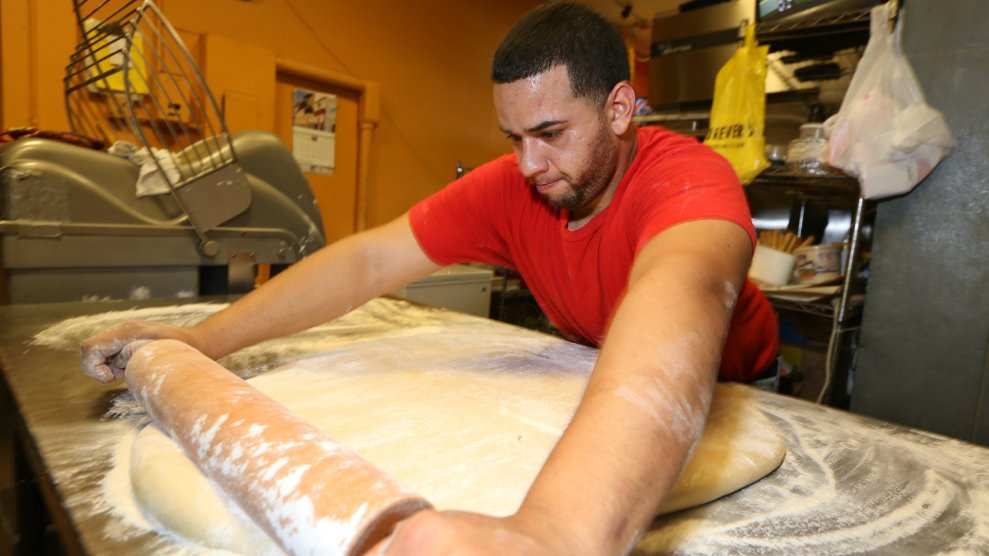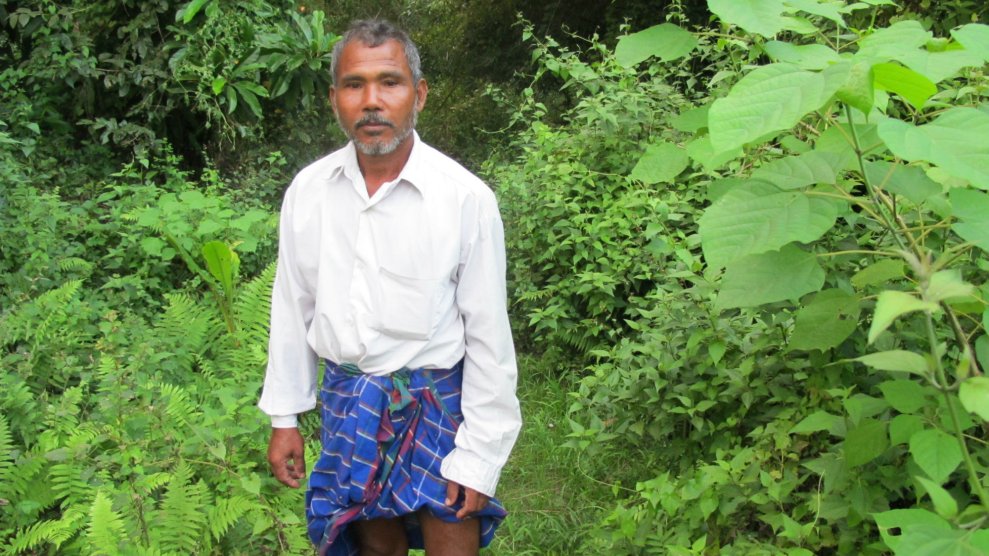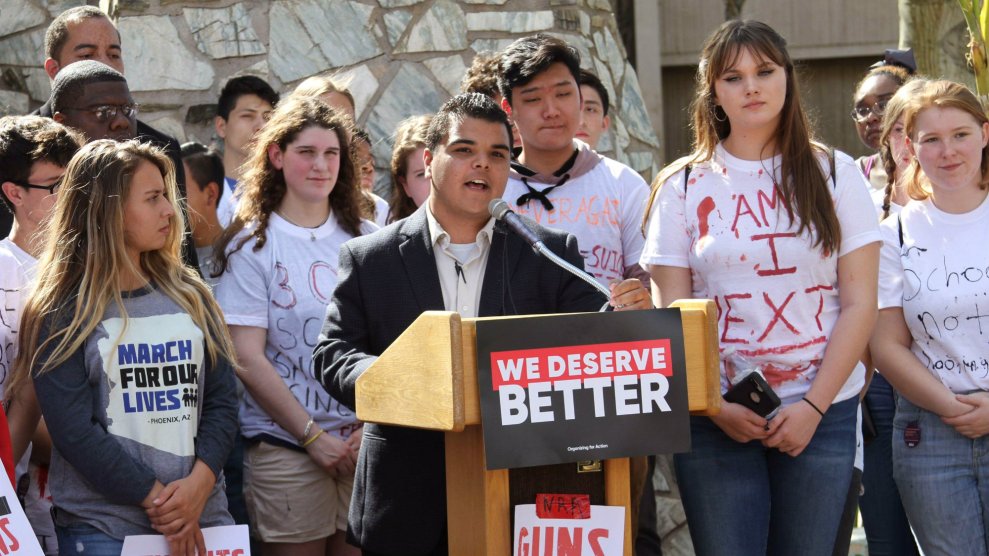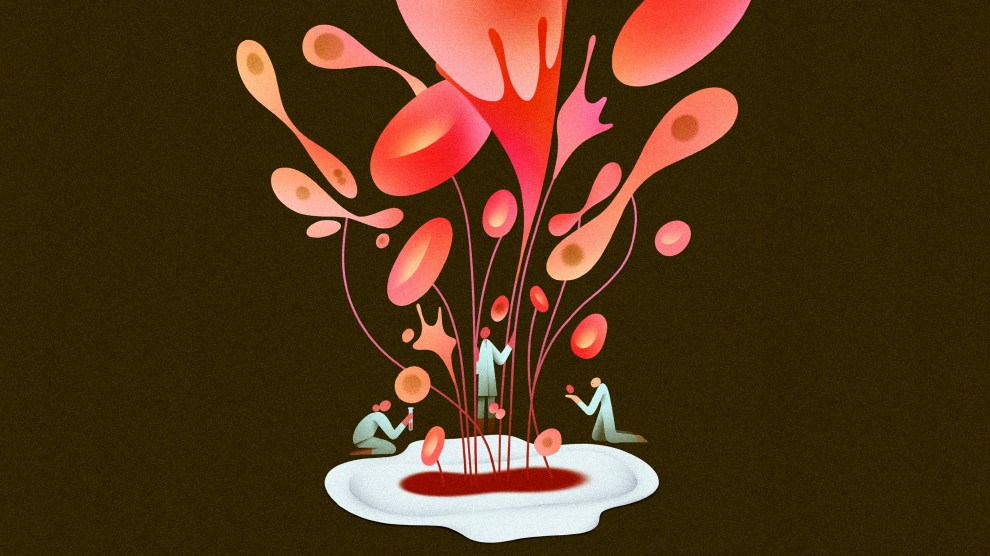
Luis Miguel Santiago Rivera makes donuts at Sowy's Bakery in Lowell, Massachusetts.Courtesy of Julia Malakie/Lowell Sun
The palmeras and cheesecake are light and airy, the guava-filled pasteles flaky, glazed, delightful.
The pastries are the creation of Luis Miguel Santiago Rivera, one of the newest bakers at Sowy’s Bakery in Lowell, Massachusetts. Santiago Rivera moved to the town after Hurricane Maria struck Puerto Rico and reduced his hours as a baker in the city of Ponce.
Now, Santiago Rivera has brought a taste of home with him further north and revitalized the sweets stand at Sowy’s. He’s been a blessing for a clientele that includes many migrants, says owner Sol. E. Ofarrill, 67.
However, it’s not been all roses for the 23-year-old Santiago Rivera: Much of his family remains in Puerto Rico, including his 4-year-old daughter, Lisuannete, and her mother. But he’s helping out his family and has hopes to open his own bakery one day, Lowell Sun reporter Amaris Castillo tells me.
Pregnancy cravings drove Castillo to the bakery, where she met Santiago Rivera and wrote about him for the Sun. In the hot kitchen, with the smells of birthday cake and roasted pork in the air and Spanish coming from the TV, Santiago Rivera smiled. “I feel like I’m back in Puerto Rico,” he told her.
Munching on a palmera, one customer, Angelica Morales, told Castillo that the pastries reminded her of Puerto Rico: “It’s great that they make all this, so we can keep a tiny piece of the island here.”
Recharge is a weekly newsletter full of stories that will energize your inner hellraiser. Sign up at the bottom of the story.
-
The janitor of plenty. Carolyn Collins does much more than sweep, clean, polish, and remove trash at Tucker High School outside Atlanta, Georgia. She helps many of the school’s students by providing them with items they might need, from food, clothing and shampoo to school supplies. She stocks these items in a “giving closet,” spending hundreds of dollars a month.
When one student, Kennedy Carroll, found himself homeless and sleeping in his mom’s car, the school custodian asked him if he needed anything.
“I basically told her, ‘everything,'” said Carroll, now a college sophomore. “I didn’t have clothes or good shoes or food, or even a toothbrush. She gave me all of that and more.”
Carroll is one of 150 students that Collins has helped over the past four years. Her generosity has inspired other students and teachers at the high school to donate items as well.
“I’m going to do whatever I can to help these kids,” said Carroll, whose son was slain in a robbery six years ago. “High school is hard enough without being homeless.” (Washington Post)
-
Paying it forward. She discovered radio pulsars and was the first to analyze them, but it was her male collaborators who won the Nobel Prize.
Now Jocelyn Bell Burnell has won a $3 million award for her discovery—and is using it to fund graduate scholarships for women, refugees, and underrepresented minorities who want to study physics.
“I don’t want or need the money myself and it seemed to me that this was perhaps the best use I could put to it,” said the astrophysicist.
As a woman in a male-dominated field, Burnell says that being a minority helped her find fresh ideas. “I found pulsars because I was a minority person and feeling a bit overawed at Cambridge,” she said.
“So I have this hunch that minority folk bring a fresh angle on things and that is often a very productive thing. In general, a lot of breakthroughs come from left field.” (BBC News)
-
Finally, a ban overturned. With one decision, the world’s most populous democracy granted more protections to gay, lesbian, and transgender members of society. India’s Supreme Court overturned a decades-old ban on consensual gay sex last Thursday, saying the decision was long overdue.
“History owes an apology to members of the community for the delay in ensuring their rights,” Justice Indu Malhotra said.
It’s a first, powerful step for India, says Menaka Guruswamy, one of the lead lawyers representing gay petitioners.
The decision, she says, tells gay Indians: ‘You are not alone. The court stands with you. The Constitution stands with you. And therefore your country stands with you.'” (New York Times)
-
Giving a break to panhandlers. Put away your signs, one city has told those asking for handouts on city streets and parks. Come work for us instead.
Portland, Maine, has hired panhandlers to weed public gardens, remove trash and syringes from parks, and place flags alongside the graves of veterans. It’s work two days a week at the city’s minimum wage of $10.90 an hour. The city hopes that the program, currently in its second year, can put panhandlers on a path to employment with a day-labor agency. The program also hopes to connect them with services that provide food stamps and housing vouchers. Seventeen people in the program have found jobs so far.
Amid weeding and raking, Frank Mello, whose wife died of a heroin overdose three months ago, says the work has helped him give weekly allowances to his two teenage daughters.
“It makes you feel good about yourself, makes you feel that you’ve still got it,” Mello says. (The Boston Globe)
Have a Recharge story of your own or an idea to make this column better? Fill out the form below or send me a note to me at recharge@motherjones.com.
















